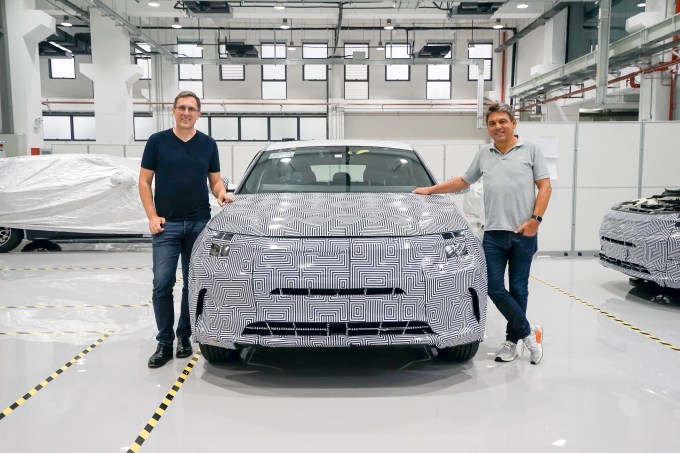Electric car startup Byton loses co-founder and former CEO, reported $500M Series C to close this summer
The race is on for building and shipping more cost-effective electric cars, but today one of the more ambitious startups in the field announced some significant changes that underscore some of the challenges in making that a reality. Byton, the Chinese electric car startup, today announced that Carsten Breitfeld, the former BMW executive and Byton co-founder who had been the CEO and was most recently chairman, has left the company “to start a new adventure within the start-up industry.”
To offset that news, Byton said that it is currently recruiting for a new CTO, will close its Series C funding — a $500 million round, according to this report from January — this summer and is on track for production of its M-Byte SUV vehicle for Q4 2019. The company recently said that it is looking toward an IPO, with the business currently valued at around $4 billion and counting 50,000 customers, with half in China and half in the U.S.
“Thanks to our founding team and all employees we’re well on track and looking forward to delivering the M-Byte this year to customers in China, followed by the US and Europe in 2020,” said Byton co-founder and current CEO Dr. Daniel Kirchert. “Carsten helped build a strong BYTON brand and bring in the right people to take our start-up to the next level. Now we are focusing on our main goal to achieve the on-time-start-of-production of the first BYTON series production model in 2019 with our strong team and partners.” There were no comments about IPOs in today’s statement.
It’s not clear who is overseeing the technical aspects of the business in the meantime — it doesn’t appear that there had been an official CTO at the company previously, but before Byton, Breitfeld had been VP of engineering at BMW. Dirk Abendroth, another BMW engineering alum, left Byton in October of last year to become CTO of OEM Continental.
Byton was originally started as Future Mobility Corporation as a joint venture between Harmony Auto, Tencent and Foxconn, which put Breitfeld and Kirchert, pictured below left and right, in place as co-founders and leaders of the business. It has raised about $700 million to date, with the most recent round of $500 million closing in June 2018.

But there have been reports that the company was running out of money since the end of last year, balancing the capital intensiveness of building new vehicle technology and new vehicles as a startup (no small feat considering that its competitors are some of the biggest companies in the world), with the fact that the company now employs some 1,600 people — a good portion of whom were cherry-picked from existing automotive companies and are therefore expensive.
Byton is not the only electric car company that is swerving to try to avoid unexpected roadblocks in its growth. Tesla earlier this year cut its workforce to streamline its own production, and it has been making many sudden decisions on its retail strategy in an effort to cut costs.
For the new generation of vehicles, it’s not just all-electric technology that is tricky to build in a cost-effective and efficient way, but the fact that these investments are being balanced against other major initiatives around vehicle software, and in particular autonomous technology.
Many believe that the industry is heading inevitably toward self-driving vehicles, but right now we’re far from that and the development of the features poses a lot of safety and other hurdles and a complete picture of how it will look is still a moving target. Byton, for its part, is currently working with a third party, Aurora, for self-driving tech for its vehicles.
We have contacted Byton with questions about who is acting as CTO at the company currently, and if it can provide any more details on the Series C or valuation. We will update this post as we learn more.
No comments: